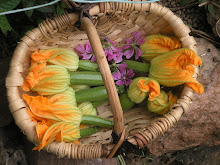Yesterday was our day off, and a group of us wanted to visit Jenin and try to get to see the Theatre that had been mentioned in the film we saw the other night (Anya's Children, see Project Hope entry of 22.11.10).
We took a service taxi from Nablus, and wound north through the dry countryside in an hour's journey to Jenin. It being a Friday, everything was closed, with the odd exception. We had three local volunteers with us, and one of them knew a good falafel joint: we headed straight there. These falafels were oblong, as opposed to round, and outside we saw the man making them: a slightly bigger version of the machine I bought in the Souk, and he managed to squeeze onions into the middle of the chick-pea mix. They were very good.
There were no road-blocks, as such, but there was an Israeli Army armoured personnel carrier (APC) at the bottom of a new road, leading to a settlement behind a high barbed-wire wall. The soldiers were relaxed, laughing with a girl who sat in the APC front seat, but they still wore full battle fatigues and carried machine guns. The roads to the new settlements are always manned by the Israeli Army, as they are so controversial and not at all welcome - especially as they are viewed as illegal internationally, they have commandeered strategic hills, are taking local water and of course land farmed by locals for centuries. There is a lot of local resentment, and a feeling that Israel wants to divide what is left of Palestine, or the West Bank, up into cantons where you cannot cross from one area to another.
With full bellies we headed into the town itself, to try to find the refugee camp and the theatre. There were hundreds of kids, and they followed us everywhere, shouting 'how are you?' 'what is your name?'. We got to the refugee camp, which was again like an extension of the town itself, being as it was a warren of tiny streets and alleys, with two-storey buildings in grey concrete. The walls were full of graffitti, and we got a local to translate: often it was the names of martyrs, that is to say locals who were killed in the fighting.
It felt strange to be walking along these streets, under the hot sun, where just a few years earlier tanks had rolled, homes were crushed and many people were killed. It took a while for us to realise that every wall was pock-marked by bullet holes, not just the occasional one or two. The now-familiar posters flapping in the breeze of the locals who died in the conflict. We didn't feel too comfortable, a big group of Westerners coming to stare, so we didn't stay long and headed for the theatre.
Once there we were pleasantly surprised, as in the film, Arna's Children, the Theatre had been completely destroyed by shells: I suppose it was seen as a terrorist strong-hold. It had been completely re-built on a different site, and was much larger than I had anticipated. We then had a stroke of luck, as at that moment an International volunteer strolled around the corner. He wasn't expecting to see us at all, as we had come without any arrangements. But he was hospitality itself, and invited us in and made us all a coffee.
He had been here (to Palestine) several times before, funding himself by being a carpenter back home in Wales. He then gave us a talk about the progress of the Theatre since the events in the film, and we were thrilled to hear that they had received International recognition, funding and had actually toured Austria and Germany with one of their productions, selling out all tickets within 40 days, which is amazing.
The son of Arna, a Jewish Film Director, is still very much involved with the Theatre, and they are putting on a production of 'Alice in Wonderland' soon. They had done a production of Orwell's 'Animal Farm', which was pretty poignant. I recommend this book to everyone, along with '1984' and Huxley's 'Brave New World'.
After a tour of the Theatre we watched three short film clips, giving us an idea of what they do and why they are here. They were very powerful films, one of them being 'Fragments of Palestine'. There are no psychologists or psychotherapists here in Jenin, and the Theatre is the only way the children here can be creative and express themselves, and sometimes their frustrations and troubled past. The students themselves were talking to camera, and were eloquent and intelligent, if sad.
Here's the link, for anyone interested:
http://www.thefreedomtheatre.org/
Saturday, November 27, 2010
Subscribe to:
Post Comments (Atom)

No comments:
Post a Comment